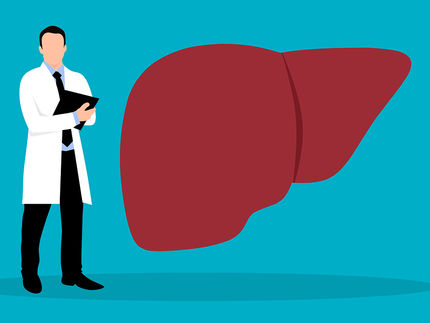NovImmune Initiates a Proof-of-Concept Study in Primary Biliary Cirrhosis (PBC)
NovImmune announced that a Proof-of–Concept (PoC) study with NI-0801, a fully human monoclonal antibody neutralizing the CXCL10/Interferon-gamma-inducible protein-10 (IP-10) chemokine, was initiated in patients with PBC. This is a chronic inflammatory, debilitating condition of the bile ducts that leads to liver cirrhosis and eventually to liver failure, and which represents a high unmet medical need. Preclinical models and human data strongly associate CXCL10/IP-10 to the etiology of PBC. Two previous Phase I trials in healthy volunteers have demonstrated that the administration of NI-0801 is safe and well tolerated.
PBC is an orphan, autoimmune, progressive liver disorder that primarily affects females. Typically, the disease becomes apparent during middle age (between 30 and 65). Inflammation, developing around the small bile ducts, progressively induces an obstruction and accumulation of bile leading to damage of liver cells. As damage worsens, scarring (cirrhosis) gradually occurs and may ultimately cause liver failure, for which transplantation is the only therapeutic option. Common early symptoms of PBC are itching and fatigue. Currently, only symptomatic treatments are available and the need for disease modifier drugs is extremely high.
CXCL10/IP-10 is secreted by several cell types in response to inflammation and contributes significantly to the entry of immune cells into the liver. These cells are responsible for the destruction of the biliary tract in PBC and, with time, provoke the dysregulated scarring process which characterizes the late stages of the disease. The neutralization of CXCL10/IP-10 with NI-0801 offers the possibility to interfere with one of the key inflammatory processes that leads to PBC.
David Adams, Professor of Hepatology, Director of the NIHR BRU Centre for Liver Research at the University of Birmingham, and Principal Investigator of the PoC study, commented that ”the therapeutic approach of neutralizing CXCL10/IP-10 with NI-0801 will potentially offer for the first time great benefits to the large and therapeutically ill-served PBC patient population”.
Most read news
Other news from the department research and development

Get the life science industry in your inbox
By submitting this form you agree that LUMITOS AG will send you the newsletter(s) selected above by email. Your data will not be passed on to third parties. Your data will be stored and processed in accordance with our data protection regulations. LUMITOS may contact you by email for the purpose of advertising or market and opinion surveys. You can revoke your consent at any time without giving reasons to LUMITOS AG, Ernst-Augustin-Str. 2, 12489 Berlin, Germany or by e-mail at revoke@lumitos.com with effect for the future. In addition, each email contains a link to unsubscribe from the corresponding newsletter.
Most read news
More news from our other portals
See the theme worlds for related content
Topic world Antibodies
Antibodies are specialized molecules of our immune system that can specifically recognize and neutralize pathogens or foreign substances. Antibody research in biotech and pharma has recognized this natural defense potential and is working intensively to make it therapeutically useful. From monoclonal antibodies used against cancer or autoimmune diseases to antibody-drug conjugates that specifically transport drugs to disease cells - the possibilities are enormous

Topic world Antibodies
Antibodies are specialized molecules of our immune system that can specifically recognize and neutralize pathogens or foreign substances. Antibody research in biotech and pharma has recognized this natural defense potential and is working intensively to make it therapeutically useful. From monoclonal antibodies used against cancer or autoimmune diseases to antibody-drug conjugates that specifically transport drugs to disease cells - the possibilities are enormous























































